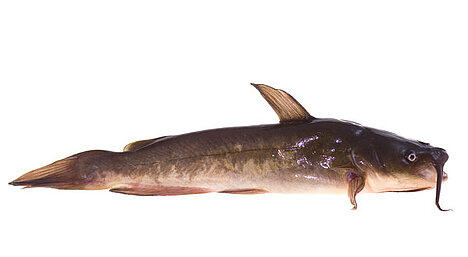Catfish

Catfish is a species of fish that occurs in fresh and brackish water. It is one of the largest freshwater fish and can grow up to three meters long. Catfish is often used as a food fish for humans, but can it also be used as dog food? Find out more about the pros and cons of catfish for your dog in this article.
What is catfish?
Catfish is a fish with a long, slender body and a broad, flat head. It has no scales, but a smooth skin that can vary in color depending on the species. Catfish also have a long whisker on the underside of their mouth, which they use to track down their food. Catfish feed mainly on other fish, crustaceans, molluscs and plants.
What are the benefits of catfish for dogs?
Catfish is rich in protein, which is important for muscle building and cell regeneration. It also contains omega-3 fatty acids, which have an anti-inflammatory effect and promote heart health. Catfish also provides many vitamins and minerals, such as vitamin A, B12, D, iron, zinc and selenium. These nutrients support your dog's immune system, eyesight, skin and coat.
What are the disadvantages of catfish for dogs?
Catfish also has some disadvantages that you should consider before feeding it to your dog. For one thing, catfish can contain heavy metals such as mercury, which can accumulate in the body and lead to poisoning. On the other hand, catfish can harbor parasites or bacteria that can make your dog ill. You should therefore always cook catfish thoroughly or freeze it before giving it to your dog. You should also make sure that your dog does not swallow any bones that could injure its gastrointestinal tract.
Catfish can be a healthy and tasty dog food if you prepare it properly and feed it in moderation. It provides many nutrients that will keep your dog fit and happy. However, you should also be aware of the potential risks of catfish and avoid them.
If you notice any signs of hypersensitivity or poisoning in your dog, you should see your vet immediately. We are not a substitute for a vet, but we try to be as accurate as possible. Every dog reacts differently and we recommend you get a second opinion or consult your vet if in doubt.
Stay healthy and take good care of your four-legged friend!😊